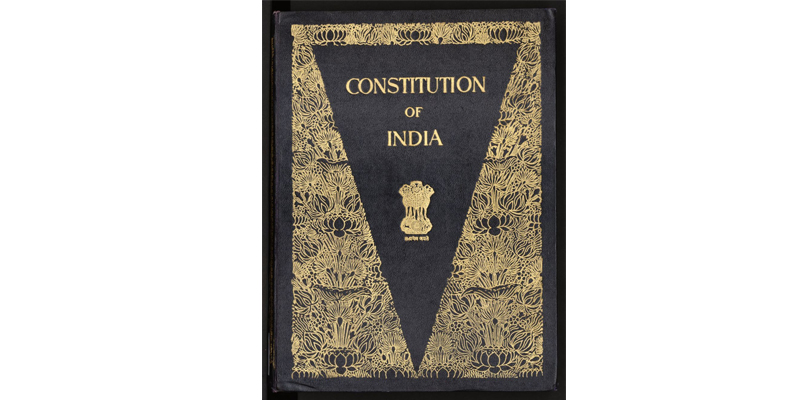Dr. K. Veeramani
Governors swear before the Chief Justice of High courts before assuming office that their governance would be protecting our Indian Constitution by following each provision adumbrated in it. Governors are appointed by the Union government. It has been customary to appoint as its agents political leaders defeated in elections, retired civil servants or those who have earned the trust of the Union government. It had also been customary during such appointments in the past to consult the chief ministers of respective States who have been elected by the mandate of the people.
Governors are appointees
This is because even as per the provisions specified in the Constitution a Governor is an appointed official and though it is the prime crown of the government it is the head inside which has to think and act. The majestic crown worn by the head can never function on its own.
The Governor may function as the real head of the Government when governments elected by the people are dismissed under Article 356 and the rule of the Governor or the President is imposed. Otherwise, as per the Constitution within the powers and responsibilities and the role of the Governors would only be to get along amicably with the State ministry, accept its decisions and convey assent.
Article 200 of the Constitution has clearly adumbrated the steps to be taken by the governor on the Bills passed and sent to them by the State Legislative Assembly. The Article concerned also clarifies and states the duty of Governor on such occasions. It is noteworthy that they are the decisions of the Government elected by the people and duly passed in the State Legislative Assembly. For the passed Bills to be enacted as law, the assent of the Governor is required. Hence, as per Article 200, the modes of action have been adumbrated. The words in it, – “Governor shall declare”
1. that he either assents to the bill or
2. that he withholds assent there from or
3. that he reserves the Bill for the consideration of the President.
No option but to forward to the President
If the Bill returned by the Governor is passed again for the second time in the same State Assembly for the assent of the Governor or to be sent to the president, as per the powers vested by the Constitution, the Governor has no option except assenting or sending it for the President’s assent as the Bill needs.
This is the backdrop of the issue. The retired former I.B. (Intelligence Bureau) officer Thiru. R.N. Ravi, who assumed office a few months ago as the Governor of Tamil Nadu has failed in performing his duty of forwarding the Bill related to National Eligibility cum Entrance Test (NEET) to the President of India. The Bill seeking exemption for Tamil Nadu from the NEET, was unanimously passed by the TN Government in the State Assembly. Instead of forwarding the Bill to the President, he returns it to the Government on 2nd February 2022, with his critical remarks, after the lapse of three and a half month.
Sovereignty rests with people
The Government of Tamil Nadu convened an all-party meet. A special State Assembly session was convened. The same Bill was unanimously passed again and sent to the Governor on 8th February, 2022. More than a month has elapsed after sending it for the second time, but in vain. Even after the meeting of the Chief Minister in person and his urging upon action, so far there is no news report from the Raj Bhavan that the Bill concerned has been forwarded for the assent of the President. Is it fair? Is this democratic duty?
What is more shocking is the query raised on March 24, 2022 in the State Legislative Assembly, by the State Finance Minister Thiru. Palanivel Thiagarajan. He pointed out that the Governor has withheld his assent for totally 19 Bills, duly passed by the Legislative Assembly. He rightly asked what kind of a democratic task this is.
In States such as West Bengal and Maharashtra ruled by opposition parties, the Governors have been causing impediments in governance to the elected Governments and indulging in undemocratic activities. The State of Tamil Nadu is like a peaceful orchard under the Dravidian Model rule. It is marching ahead fast on the path of growth and development. By such unnecessary non-co-operative activities even in this State and its rule acclaimed by the people, unpleasant clashes are being invited as we could foresee. We would like to know if there is any justice in it?
It is essential for the Governor to realize that his powers are not unfathomable. His powers are limited by the Constitution and he cannot violate the adumbrated provisions. He has to clearly understand his limits and avoid deviating from them. Amicably concurring with societal administration he has to necessarily act by getting along amicably and harmoniously. If the Governor continues to ignore this, the people of Tamil Nadu would not remain as spectators. Let him realize that the State is not under his direct rule but through the State cabinet. It is a democratic rule by the Government elected by people’s mandate.
Despite severe financial deficit, the present Government headed by the chief minister M.K. Stalin, has achieved much within a short period of ten months, that which could not be achieved by the former rulers even in a long governance of ten years. The present Government has already proved to the people that the dusk has fallen and a bright dawn has broken in their lives.
It is not at all fair on the part of the Governor to cause hurdles by causing financial crunch or legal complications. He is expected to accomplish his tasks adhering to the Constitution. A good governor would never do anything undesirable and improper. It is high time he realized that true sovereignty rests in the people. He may now perceive clearly that this truth has been adumbrated in our Constitution. This is the most urgent need of the hour and inevitable too.







